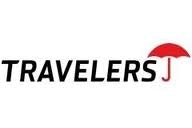Having property insurance coverage can mean the difference between protecting your assets, and losing everything. But as crucial as insurance protection is, you’re likely to see some big hikes in your premiums coming soon.
What’s bringing on higher rates?
Insurance companies engage in a constant tug-of-war with policyholders and government regulators. On one hand, insurers need to earn enough in premiums to meet their eventual losses and still make a reasonable profit. On the other hand, regulators want to ensure that policyholders don’t have to pay so much that insurers end up reaping an unreasonably high profit.
What’s happened recently, though, is that several factors have combined to exert pressure on insurers to raise premiums. First and foremost, high-profile disasters, including Hurricane Irene in 2011 and Sandy last year, have caused big losses among major insurers. Travelers Companies Inc (NYSE:TRV) , The Allstate Corporation (NYSE:ALL) , and The Chubb Corporation (NYSE:CB) each suffered losses due to Sandy near the $1 billion mark, and other natural disasters in other parts of the country have contributed to hold back profits among property and casualty insurers. The need to recoup those losses has provided good arguments for insurers trying to get rate increases from regulators.

Another contributor to insurance-premium pressure is the current low interest rate environment. In setting insurance premiums, insurers have to take into account not just the money they collect from policyholders, but also the investment returns they’ll earn on that money between the time they invest it, and when they need to pay it out through loss claims. When property damage occurs, it can take months or even years for work to be done and for insurance companies to pay out claims, and until those dollars flow out of insurers’ reserves, they earn returns. But, with rates near historic lows, insurance companies can no longer count on dependable returns from low-risk investments, and they therefore have to collect more in premiums upfront to cover their eventual loss payouts.
Those pressures affect different companies in different ways. As a recent article in Barron’s observed, mutual insurance companies, which are owned by their policyholders rather than by outside shareholders, have started raising their rates in order to shore up their balance sheets in the face of weak investment returns on their generally low-risk portfolios. Because mutual insurers have traditionally been a driving competitive force in keeping shareholder-owned insurance companies from raising rates, their struggles have freed investor-owned insurers to follow suit with rate hikes of their own.